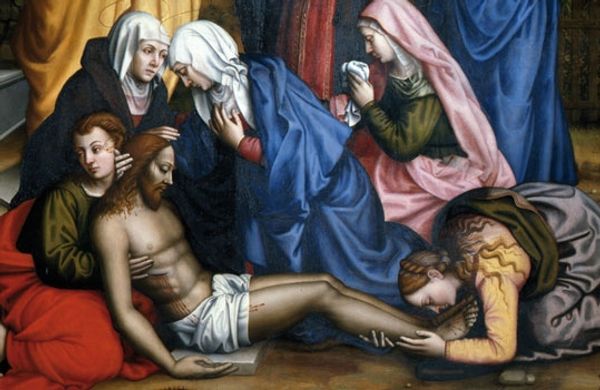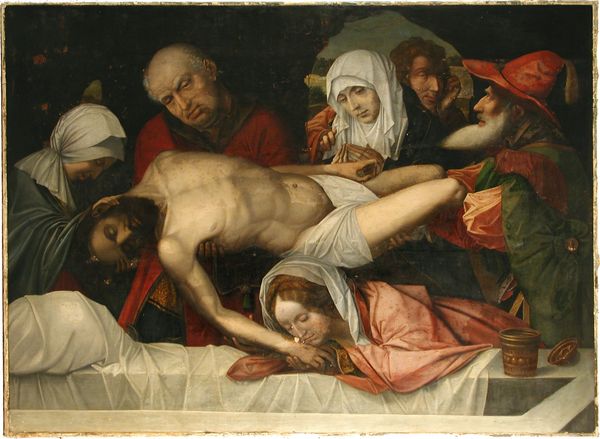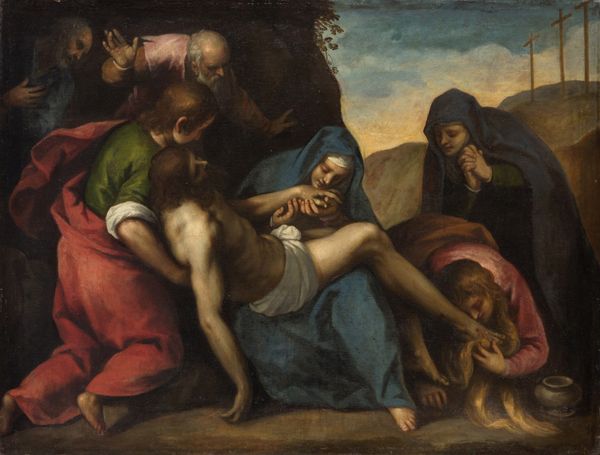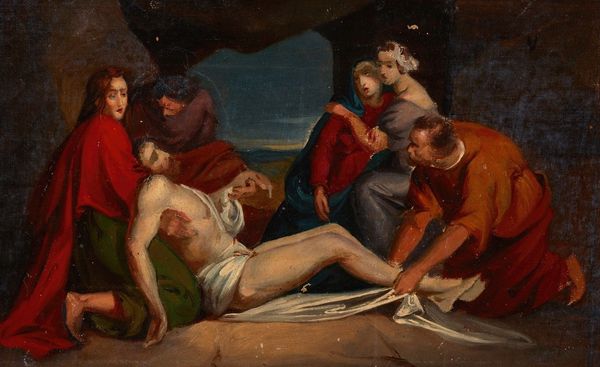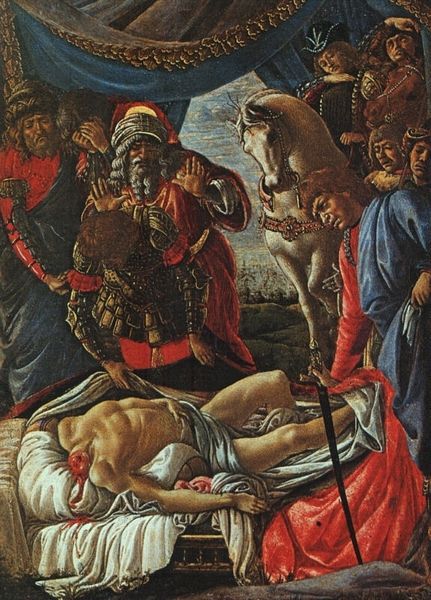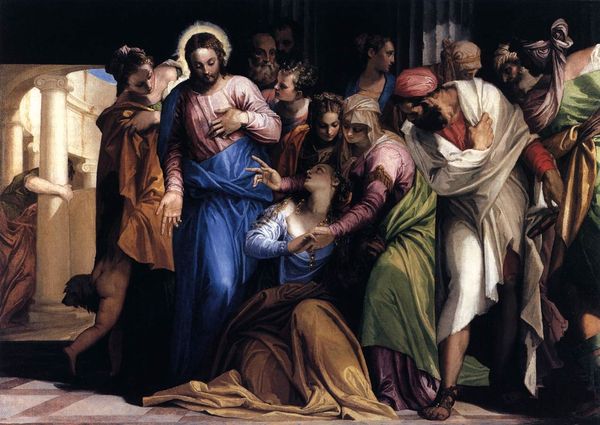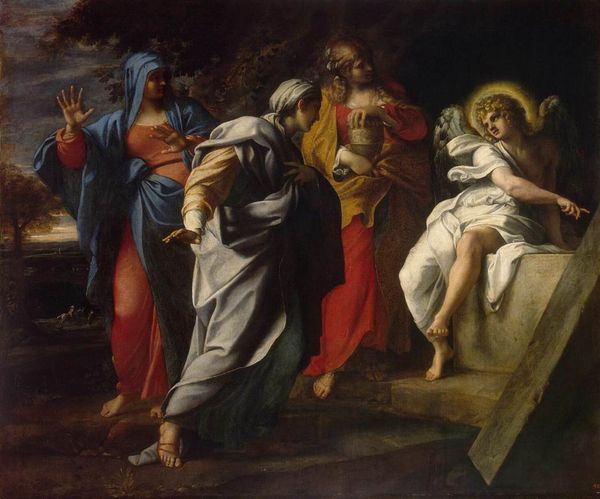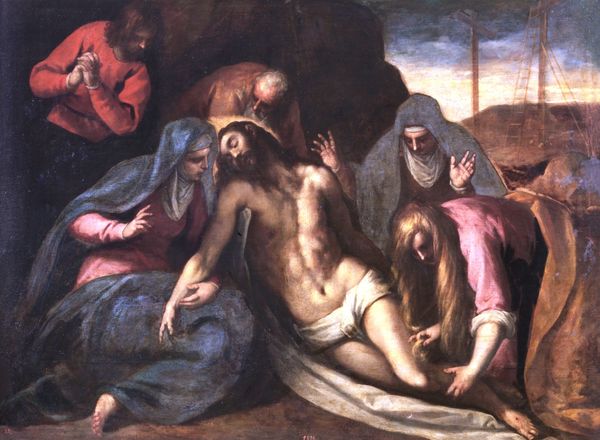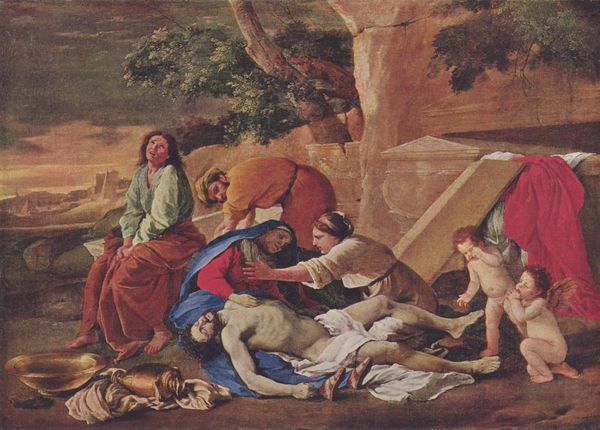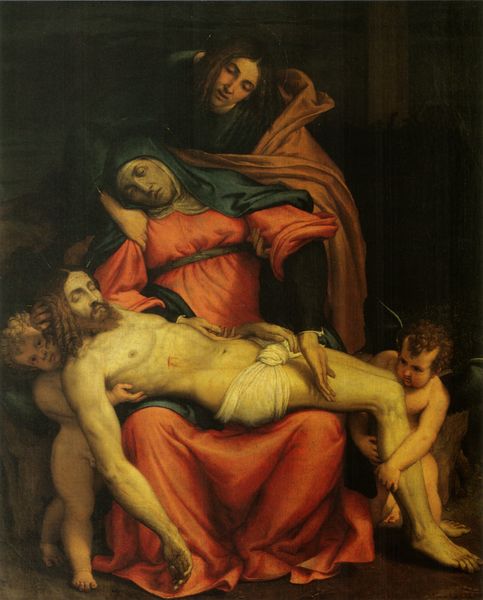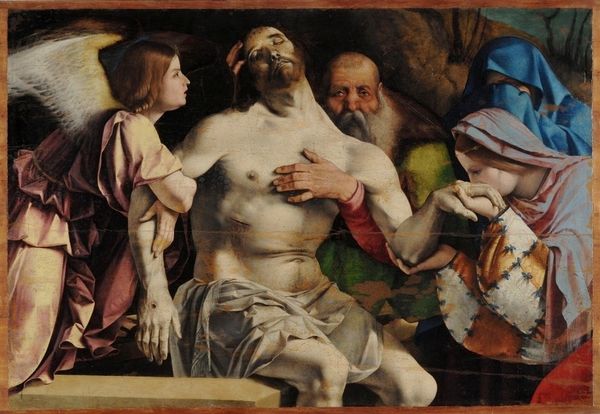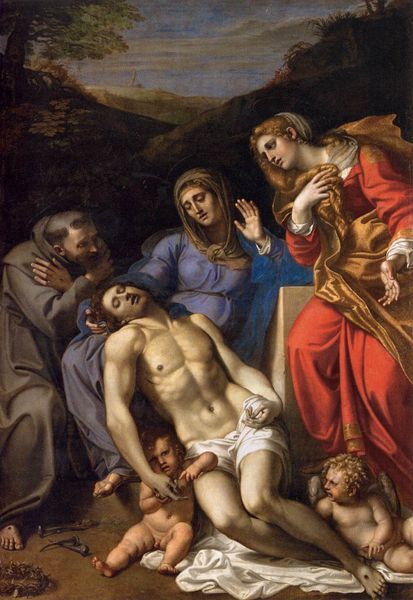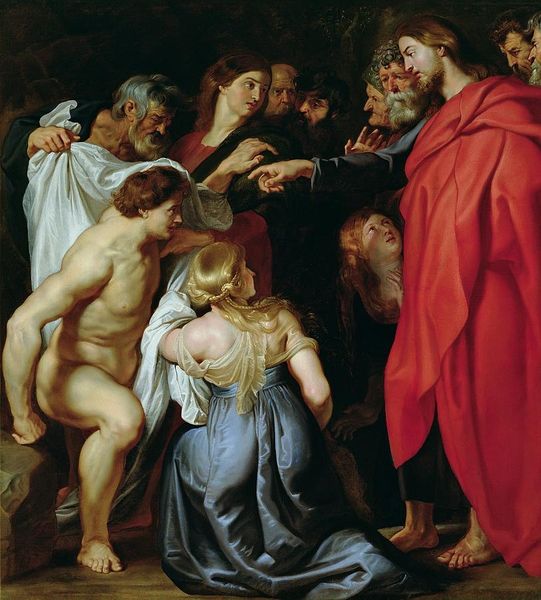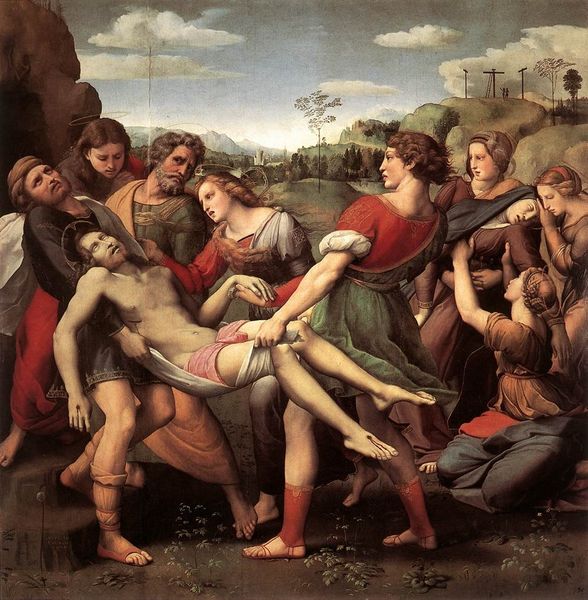
Lamentation over the Dead Christ with the saints Girolamo, Pietro and Paolo 1492
0:00
0:00
painting, oil-paint
#
portrait
#
painting
#
oil-paint
#
figuration
#
oil painting
#
christianity
#
history-painting
#
italian-renaissance
#
christ
Dimensions: 140 x 207 cm
Copyright: Public domain
Curator: A striking tableau of grief unfolds before us in Sandro Botticelli’s “Lamentation over the Dead Christ with Saints Jerome, Peter and Paul," painted around 1492. Editor: What strikes me immediately is the raw, unfiltered agony in the faces. The almost architectural arrangement of the figures emphasizes a feeling of unbearable weight. Curator: The scene is, of course, the entombment of Christ, witnessed by his mother and various saints. Botticelli made it with oil on wood. It’s fascinating to see how the artistic currents of Renaissance Florence engaged with this timeless scene of profound suffering and piety. Editor: Notice how Botticelli uses the symbolic language of gesture. Mary Magdalene embraces Christ's face in one last kiss—a symbol of transformative love—while the other figures each engage in a personalized choreography of grief, hands wrung, heads bowed, offering unique ways of facing sorrow. The architecture here feels symbolic, too—a stony, indifferent facade behind the passionate emotions of the figures. Curator: Indeed. And what's particularly poignant about Botticelli’s later works, like this one, is how they seem to reflect the artist's own increasing religious intensity and even a sense of disillusionment with the political upheavals around him. This is very much tied to his engagement with the teachings of Savonarola. Botticelli moves from the lightness of myth to a powerful engagement with mortality. Editor: It is very moving. Botticelli also uses the symbolism of light and shadow so effectively. Light illuminates Christ's pale form, drawing our eyes to the sacrifice while the background remains muted and somber, emphasizing the gravity of the moment, in a way reinforcing how an injustice prevailed here and the consequences it brings forth. Curator: The starkness in this panel speaks to something about facing difficult truths. I feel in it the long shadow of a society wrestling with its own inequities and injustices, just as we find ourselves doing today. Editor: Absolutely. In the painting’s visual lexicon of mourning, Botticelli’s painting serves as a stark mirror, inviting contemplation on grief, resilience, and, ultimately, transformation.
Comments
No comments
Be the first to comment and join the conversation on the ultimate creative platform.
